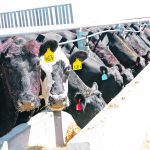New technologies also need an on-farm benefit, and some winners are showing up that help efficiency and profitability
When researchers reached the end of their triels of 3-nitrooxypropanol, a feed additive that reduces methane emissions, they also expected to see an increase in feed efficiency in the cattle that consumed it. They didn’t. Without a feed efficiency improvement, the adoption route for 3-NOP, known by its commercial name Bovaer, became more challenging. “The […] Read moreTag Archives methane emissions

Thirst for ‘climate-friendly’ milk tested
CANBERRA, Aus. (Reuters) — A small dairy in the Australian state of Tasmania is stocking supermarket shelves with what it says is the world’s first branded milk produced by cows fed with a seaweed that makes them emit lower levels of environmentally damaging methane gas. The livestock industry accounts for around 30 per cent of […] Read more
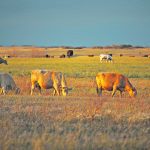
Researcher targets fibre digestibility for forage efficiency
Initial research found surprising links between cattle efficient at digesting fibre and methane emissions
Results of four interconnected studies on cattle forage intake and methane emissions have yielded useful findings, says a University of Saskatchewan researcher. “Our hypothesis is that cattle with greater digestible fibre intake would have positive RFI (residual feed intake) because they eat more,” said Dr. Gabriel Ribeiro, an assistant professor and the Saskatchewan Beef Industry […] Read more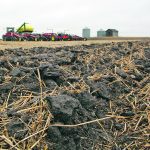
Farmers make big soil health strides
Data from Statistics Canada and Agriculture Canada highlight the positive changes made in agriculture since the 1980s
WINNIPEG — For much of the last five years, the federal government has been setting targets for Canadian farmers to reduce nitrous oxide emissions from fertilizer and methane emissions from cattle. The government has provided funding to help producers cut methane and nitrous oxide emissions from primary agriculture, while constantly beating the drumbeat of emissions, […] Read more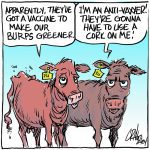
Cattle producers must be part of a methane win-win
Everybody likes win-win situations, but they can be awfully difficult to accomplish. This country’s recent focus on methane emissions from cattle is one such issue that is crying out for a win-win. The federal government published preliminary plans late last month that it hopes will encourage producers to make changes that would cut emissions from […] Read more

BLOG: Trump, Isaac Newton and farmers have something in common
On a Saturday in the second week of January, my brother-in-law asked a question about Donald Trump. We were sitting at the kitchen table in his house and the TV was on in the next room, showing the Chiefs vs. Dolphins in an NFL game from Kansas City, where the temperature was about -20 C. […] Read more
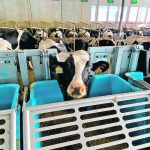
Genetic tool recognized for reducing emissions
Companies receive climate action award for their work in helping develop a way to select cattle that produce less methane
CALGARY — Canadian research that sparked the world’s first official genetic evaluation program to help dairy farmers reduce methane emissions from Holstein cattle without harming milk production has earned an international award for climate action. “The award has been a real team effort, and it’s something that didn’t just come by chance,” said Filippo Miglior, […] Read more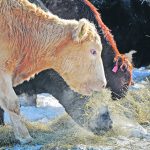
Thoughts on global warming, methane emissions, cattle
It is interesting that a specific topic — like global warming — can become all encompassing. Before we know it, deadlines are established and parameters are set, even with a one-sided view of the whole situation. Ruminants have been targeted in the global warming realm because of their methane production, which is a byproduct of […] Read more
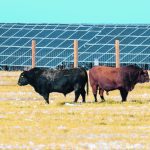
Cattle sector awaits details on methane plan
Early thinking is that federal incentives to help producers reduce cattle emissions could fit with the industry’s targets
MEDICINE HAT — Canada’s draft policy that would provide financial incentives to livestock producers to reduce methane from cattle aligns with the beef sector’s target to see those emissions reduced by a third by 2030. But how well the federal government’s proposals will merge with the sector’s efforts, which have already resulted in Canadian beef […] Read more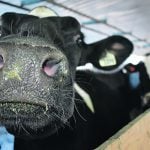
Gov’t looks for ways to cut cattle’s methane emissions
Ottawa is making $12 million available to help find ways to reduce methane emissions from cow-calf, dairy and feedlot operations. The Agricultural Methane Reduction Challenge is part of the federal government’s plan to reduce overall methane emissions 40 to 45 percent below 2005 levels by 2030 and to be net-zero by 2050. The challenge aims […] Read more

